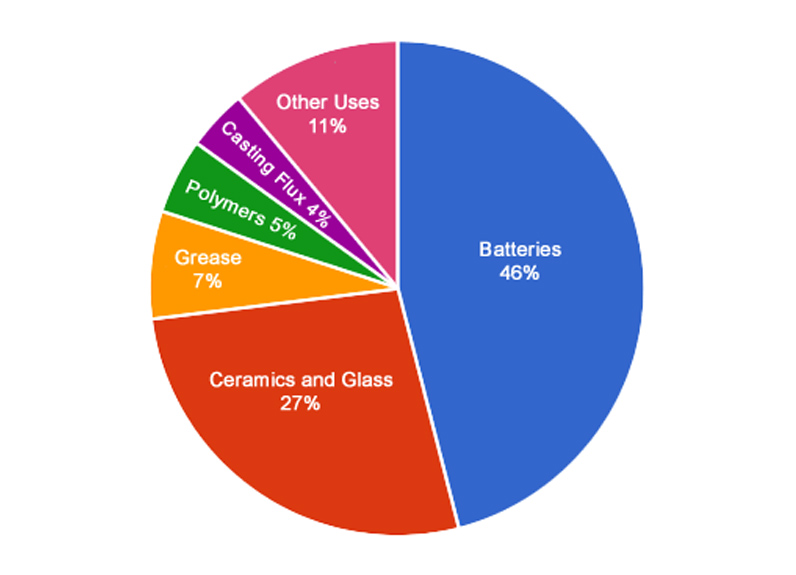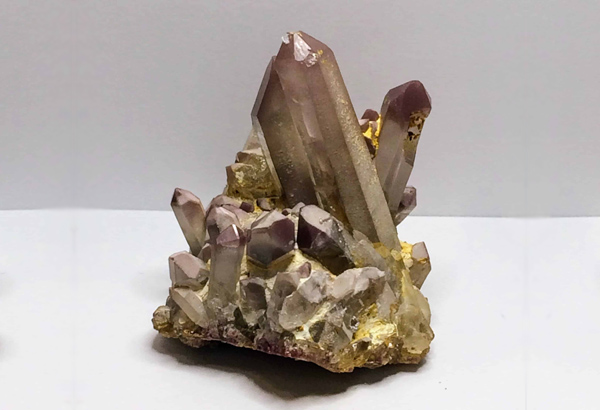Lithium is often thought of as the metallic component that is used in electronic vehicle and device batteries but there is another side to this rare earth material.
Most households are aware that the TV remote or electronic toys may use lithium batteries but there are many use cases for lithium that may not be so well known. With an ever developing society of electronics in the household the demand for lithium has been increasing year after year.
Here are some use cases you may not know about;
Lubricating greases - Lithium is used in the manufacturing of lubricating greases. These greases are able to withstand high temperatures and are therefore used in aircraft engines, being especially useful during World War II. These greases are prepared using lithium-based soaps, known as lithium stearate, as they have the ability to thicken the oils. These are made by heating lithium hydroxide, which is a strong base, with a fat, and have a higher melting point in comparison with other alkali soaps.
Ceramics and Glass - Another use case of lithium is the ceramic and enamel industries including heat resistant glass. Lithium oxide considerably reduces the melting point and viscosity of silica and is used as a flux in silica processing. It also improves the physical properties of the glazes such as heat resistance. Oven wares are usually made of glazes containing lithium oxide as they have a lower coefficient of thermal expansion.

Medicinal Uses - Lithium has been used clinically for 70 years, mainly to treat bipolar disorder. Certain lithium compounds, also known as lithium salts, are used as psychiatric medication,and are classified as mood stabilizers primarily for bipolar disorder and for major depressive disorder. Lithium continues as the standard and most extensively evaluated treatment for bipolar disorder, especially for long-term prophylaxis.
Firework Production - Lithium is a highly reactive and flammable metal due to which it is used in pyrotechnics. It serves as an oxidizer in red fireworks.
Optics Manufacturing - Lithium fluoride is specially used in manufacturing optics for visibility in infra-red, ultra-violet, and vacuum ultraviolet ranges. The crystals are grown artificially for this purpose as they have the lowest refractive indices and farthest transmission in the UV range. Finely powdered lithium fluoride is also used for thermoluminescent radiation dosimetry (TLD).
